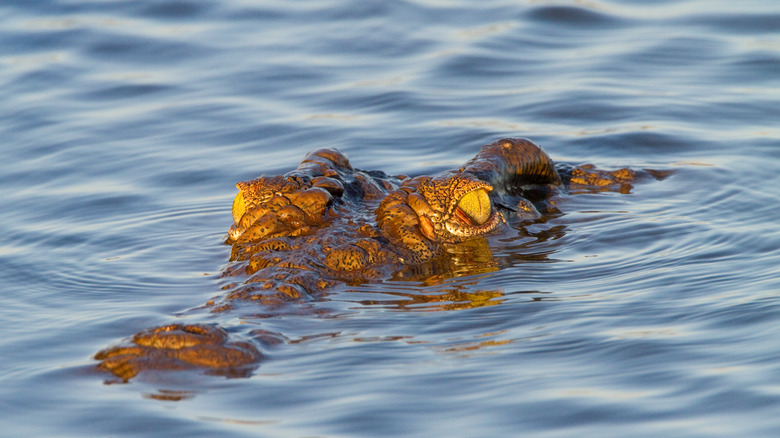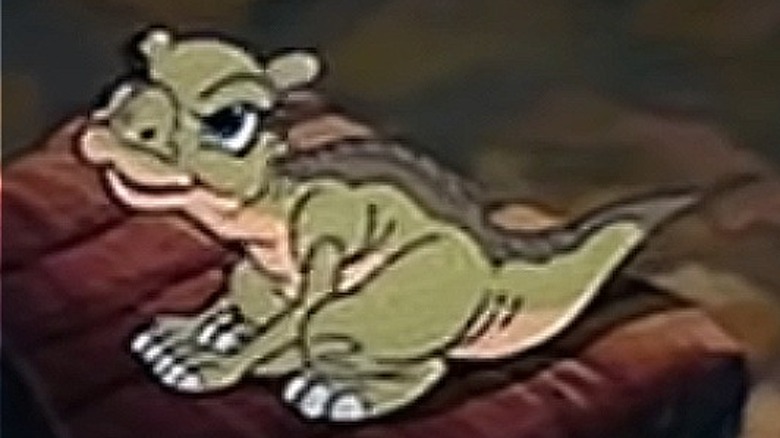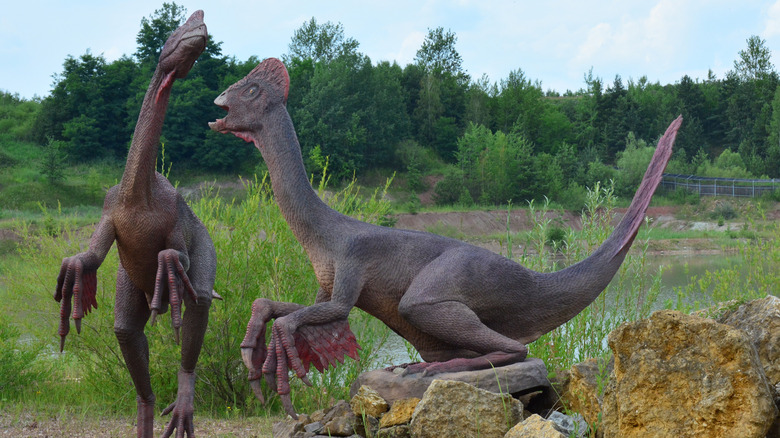A 95-Million-Year-Old Crocodile Was Discovered With An Entire Dinosaur In Its Stomach
Nearly 100 million years ago in the Australian outback, a hungry crocodile wanted lunch. He bagged something you might not expect a croc to devour. Scientists didn't expect it either. It was the first time they'd encountered a crocodile having eaten a dinosaur, according to AllThat'sInteresting.
The unusual find came in 2010 as a team of paleontologists were searching for dinosaur bones at a geological rock formation where dinosaur bones had been found before. Matt White with the Australian Age of Dinosaurs Museum was part of the team and said of the discovery, "It's just extraordinary." Never before had that type of crocodile been discovered, but the find was particularly unusual because of what the crocodile had consumed. "This is the first time that a crocodile has been discovered with dinosaur remains in its stomach. It's a world first," he said according to AllThat'sInteresting. The new species of croc was named Confractosuchus sauroktonos, which means the "broken dinosaur killer," according to USAToday.
A chicken-sized dinosaur
Confractosuchus sauroktonos was a freshwater crocodile. The specimen discovered measured over eight feet in length, according to AllThat'sInteresting, but researcher Matt White says it would likely have grown much larger. The creature was found with a nearly complete skull but missing both its tail and limbs. Its abdominal contents were "exceptionally preserved" according to an abstract on the discovery in ScienceDirect.
The dinosaur found in the abdominal contents was a small plant-eating dinosaur belonging to a group of dinosaurs called ornithopods. They had bills like ducks and were comparable in size to chickens. White said they looked a bit like Ducky from the movie "The Land Before Time," according to ScienceTimes. Ornithopods weren't typical fare for crocodiles, but White says it would have been too tempting of a meal for the reptilian to pass up, adding that Confractosuchus sauroktonos weren't exactly picky eaters, consuming anything that came their way, according to the ScienceTimes.
What the discovery reveals about prehistoric life
The discovery proved to be a trifecta of firsts. In addition to being the first prehistoric crocodile of its kind found in Australia, and being the first time it was shown that a croc had consumed a dinosaur, it was significant in another way. It was the first time that type of dinosaur had been found in Australia, according to USAToday. Researcher Matt White says the fossil remains are providing new clues as to how animals lived millions of years ago in Australia when dinosaurs, crocodiles, mammals, and birds roamed the earth together.
Not long after the crocodile nabbed his lunch of dinosaur, the crocodile itself died. White says it's not clear how, but that crocodiles weren't at the top of the food chain and it's possible another predator higher up the chain took it out. According to a news release dated February of 2022, the discovery is on display at the Australian Age of Dinosaurs Museum, which boasts the largest display of Australian dinosaurs in the world.


